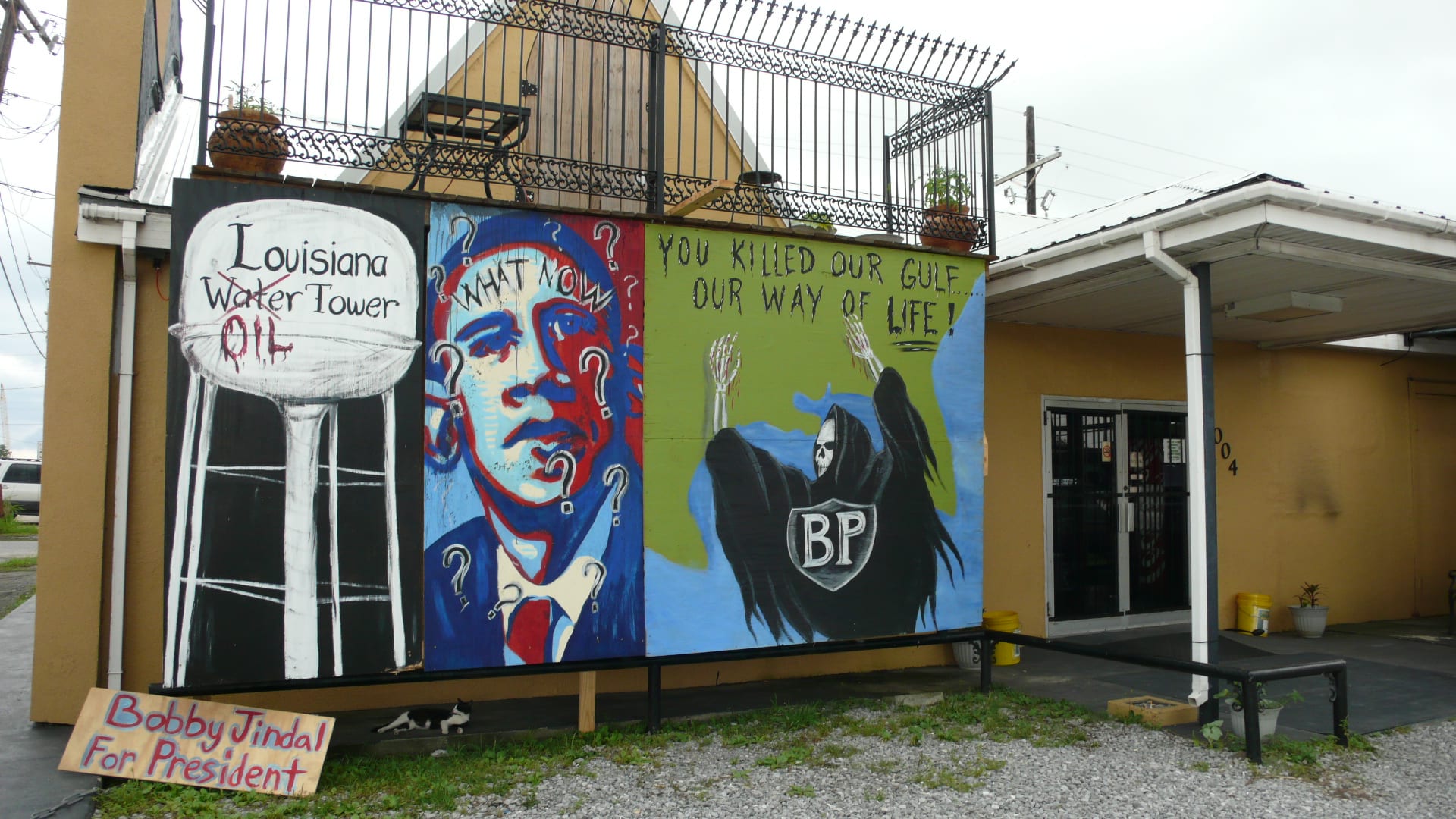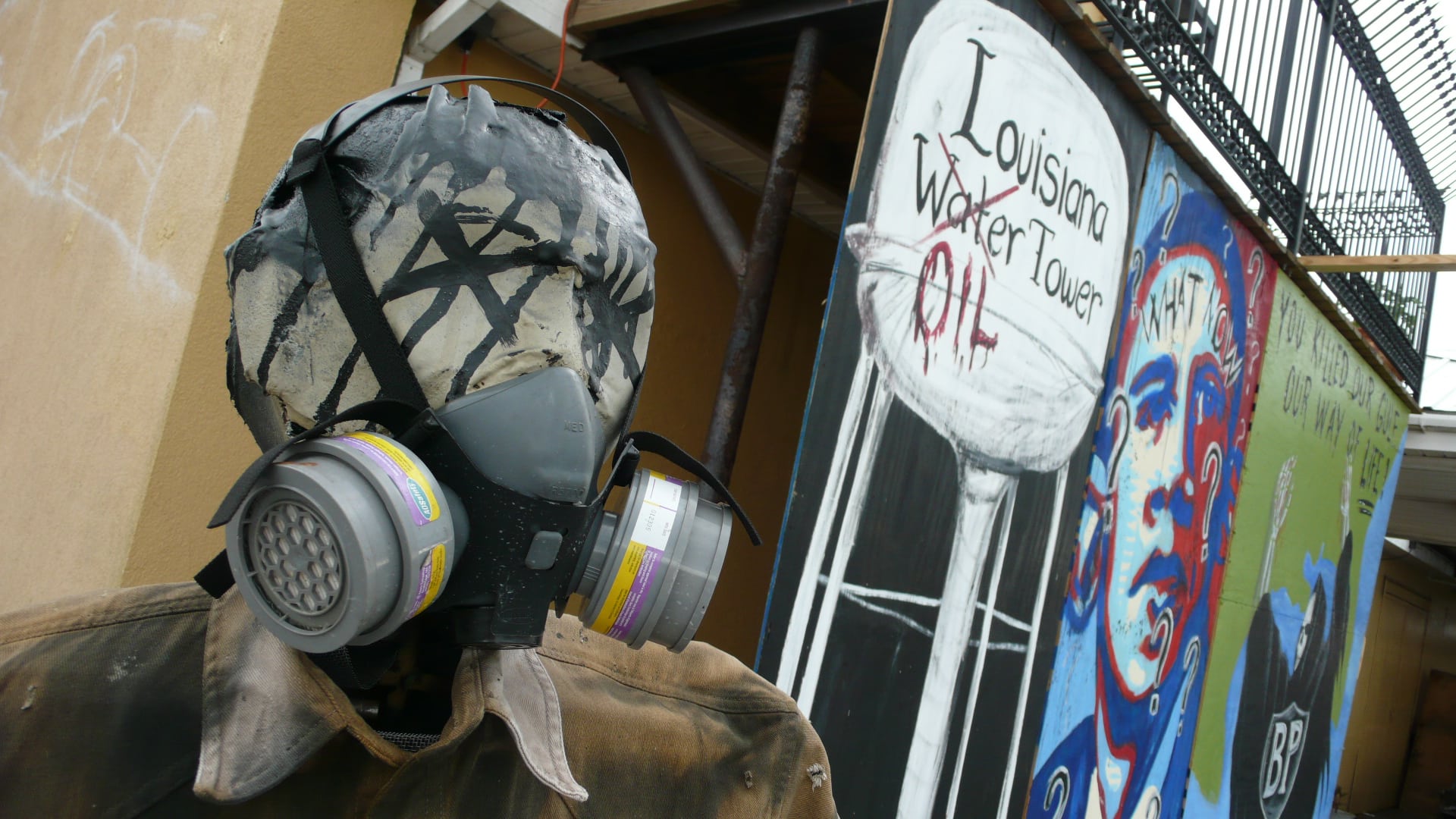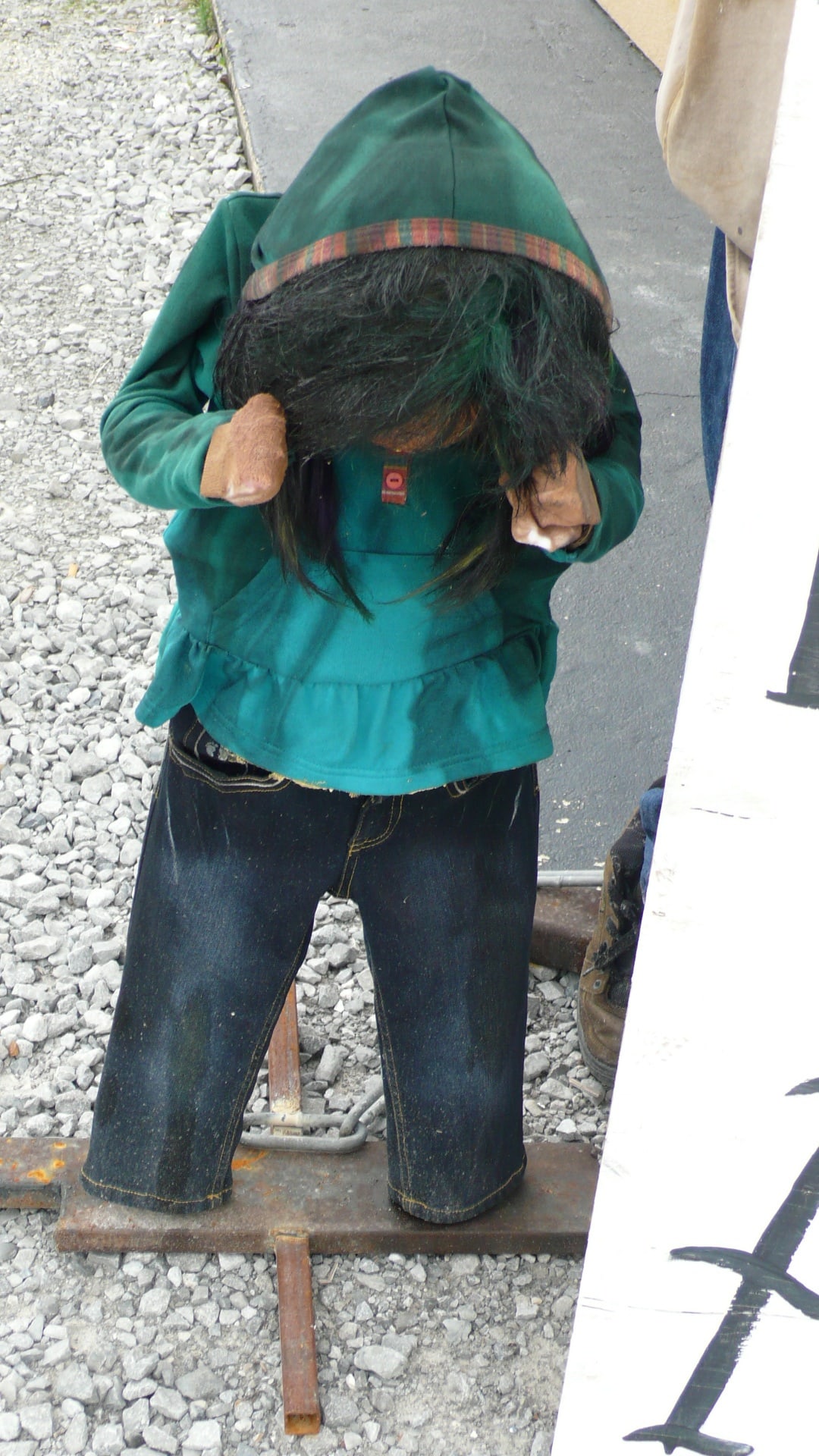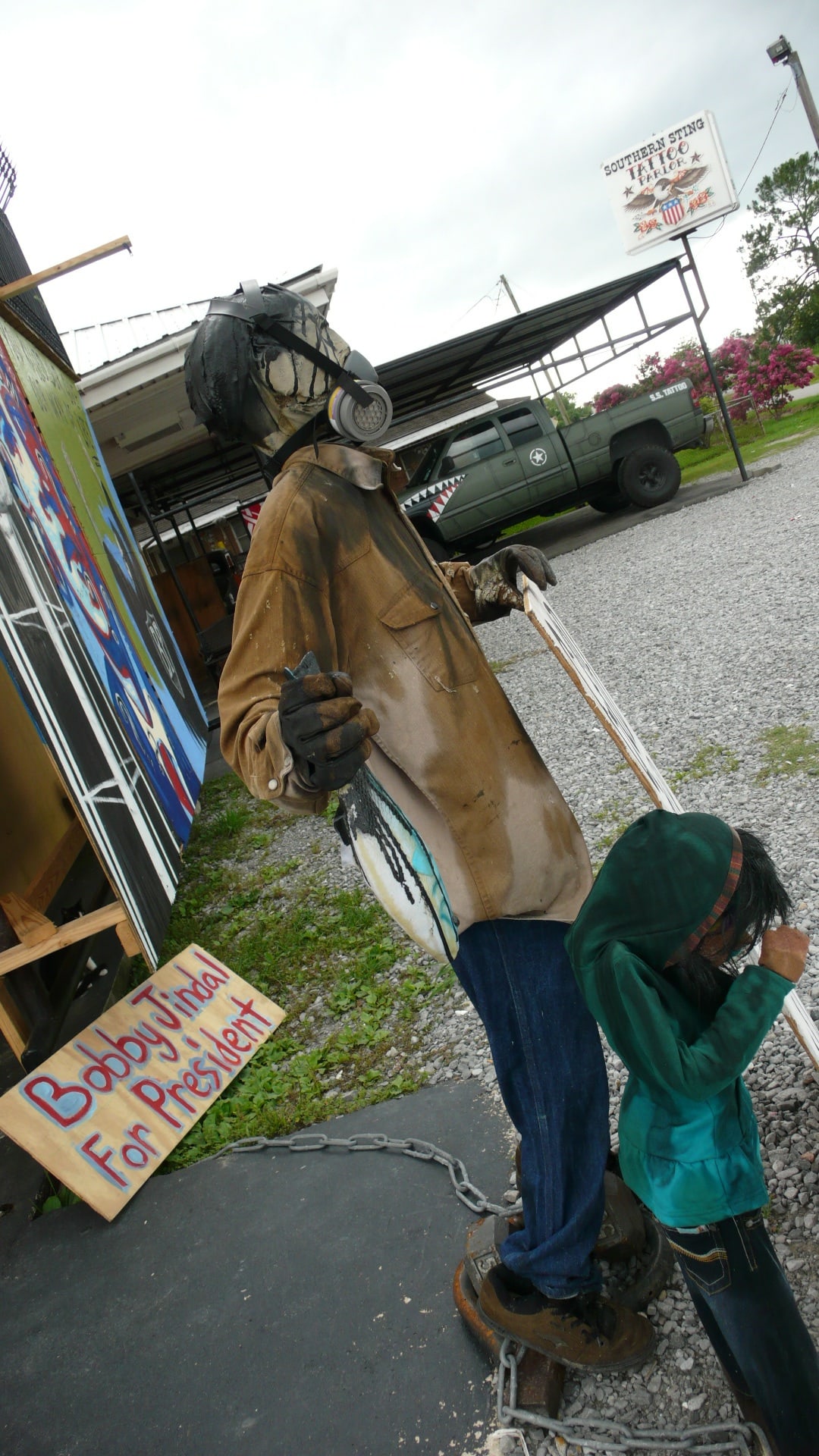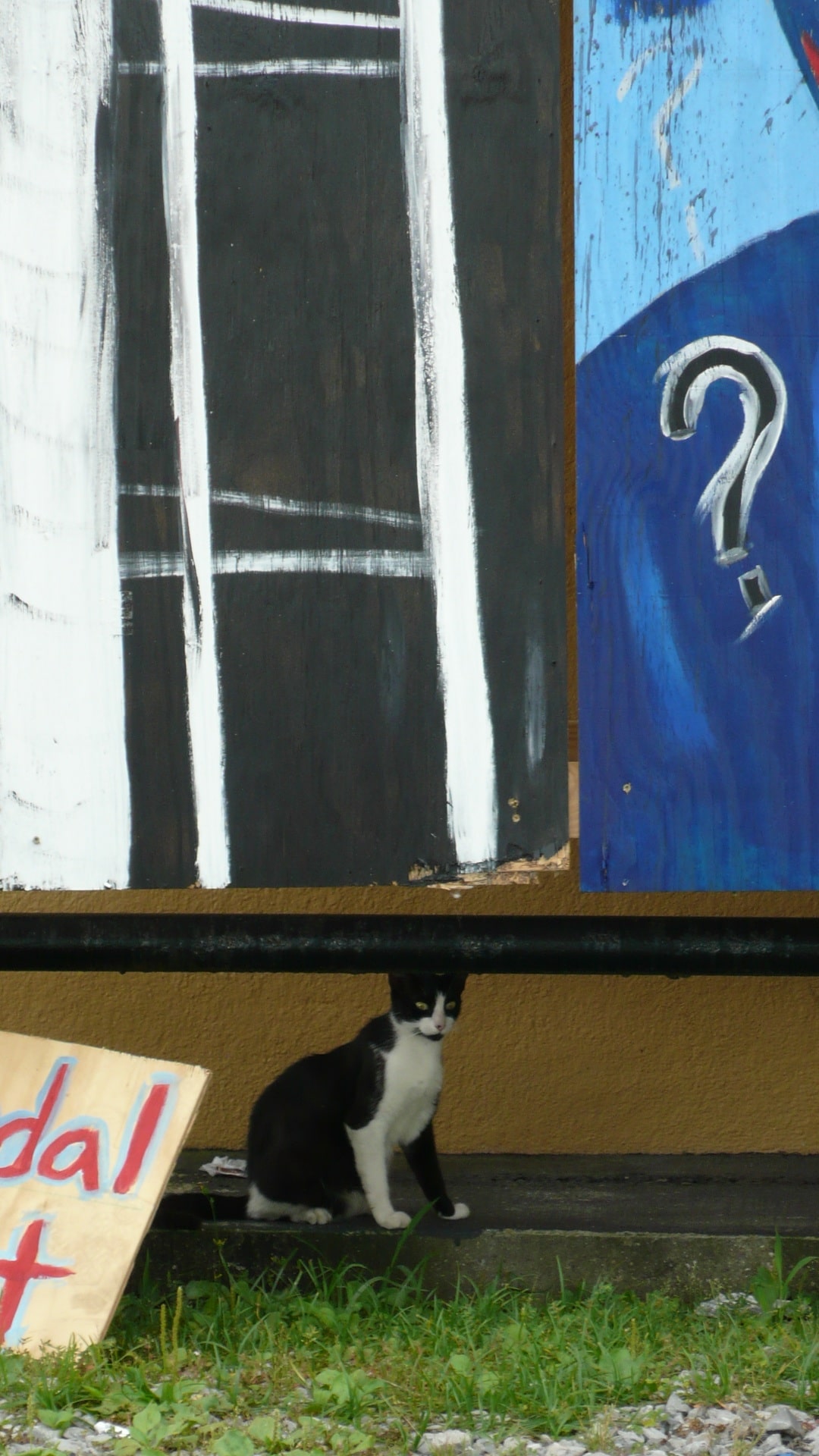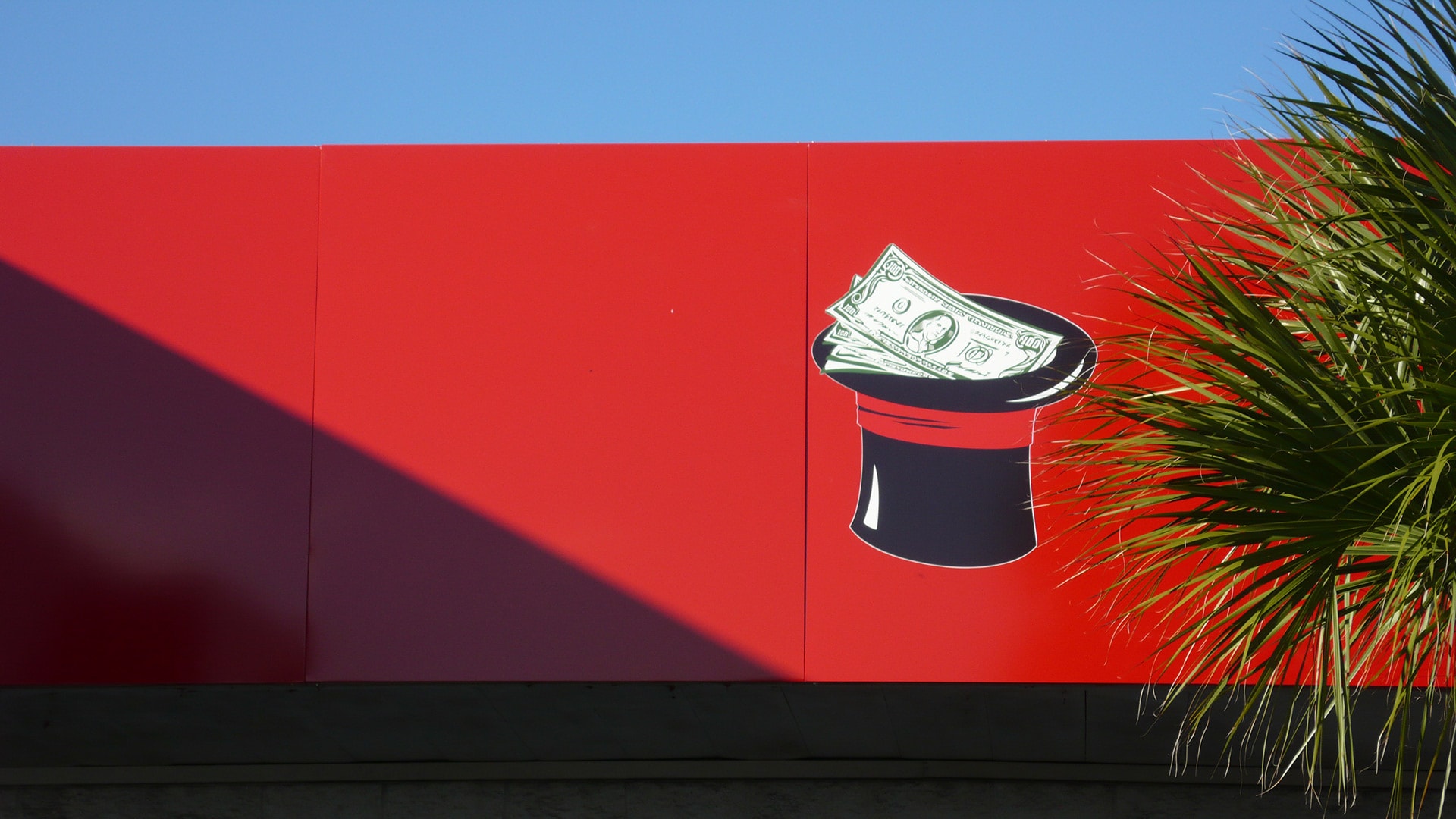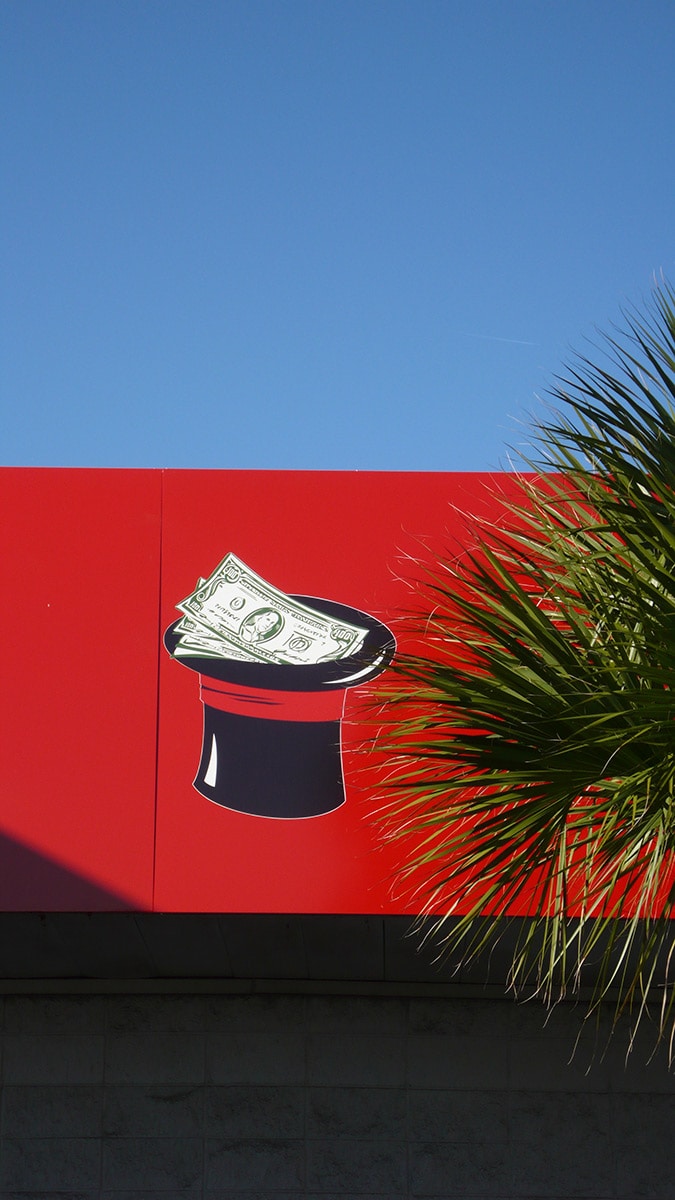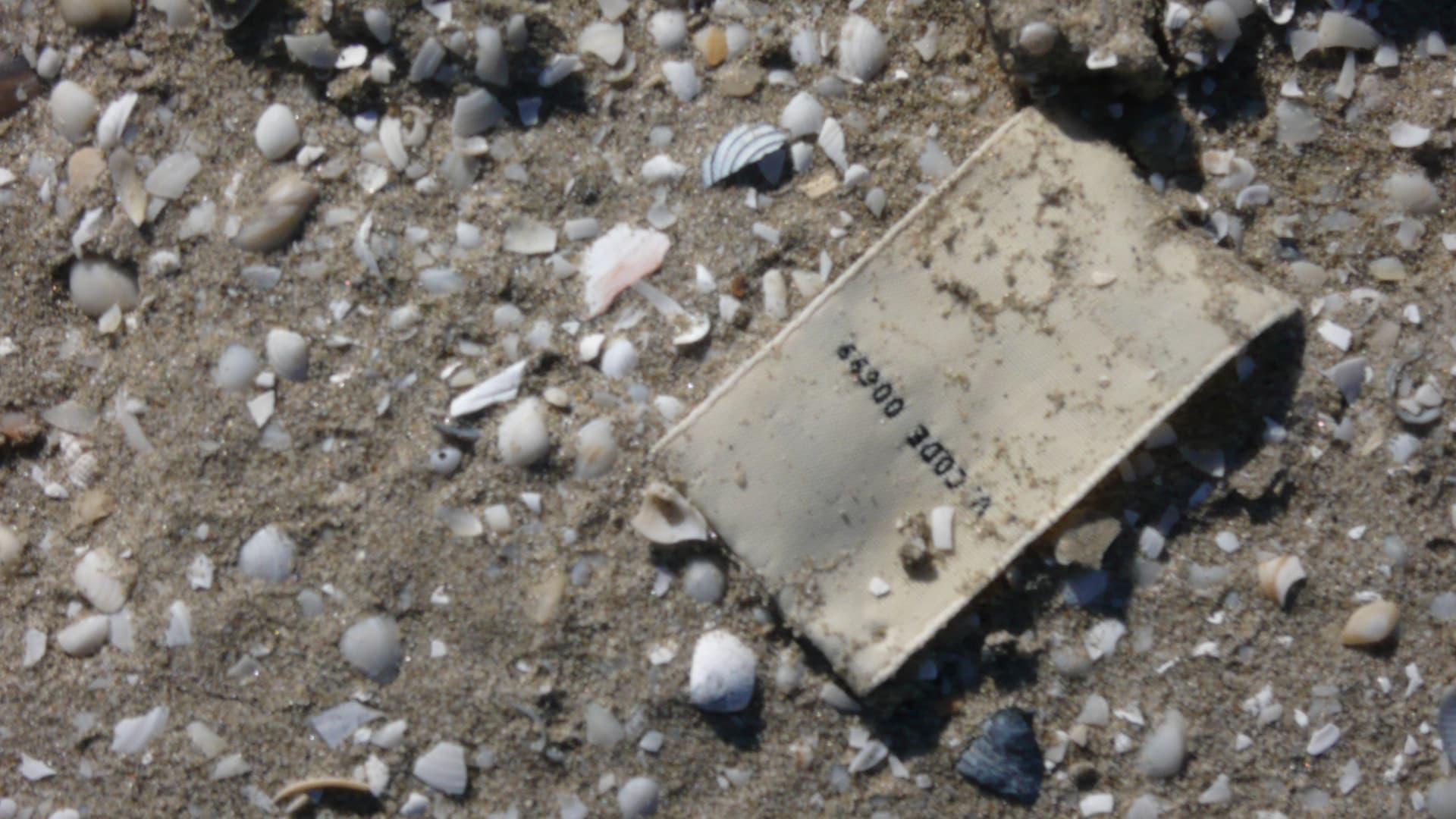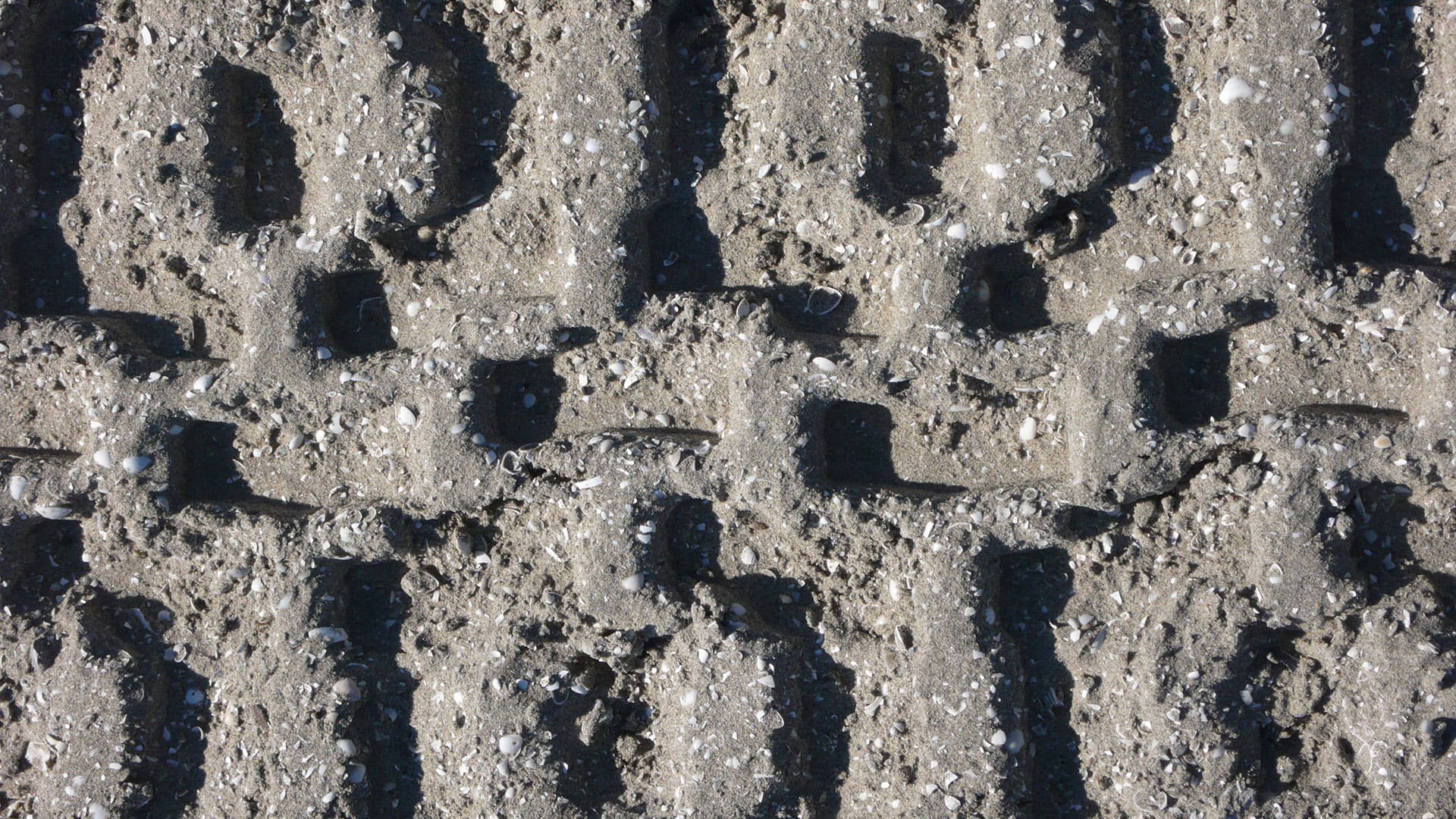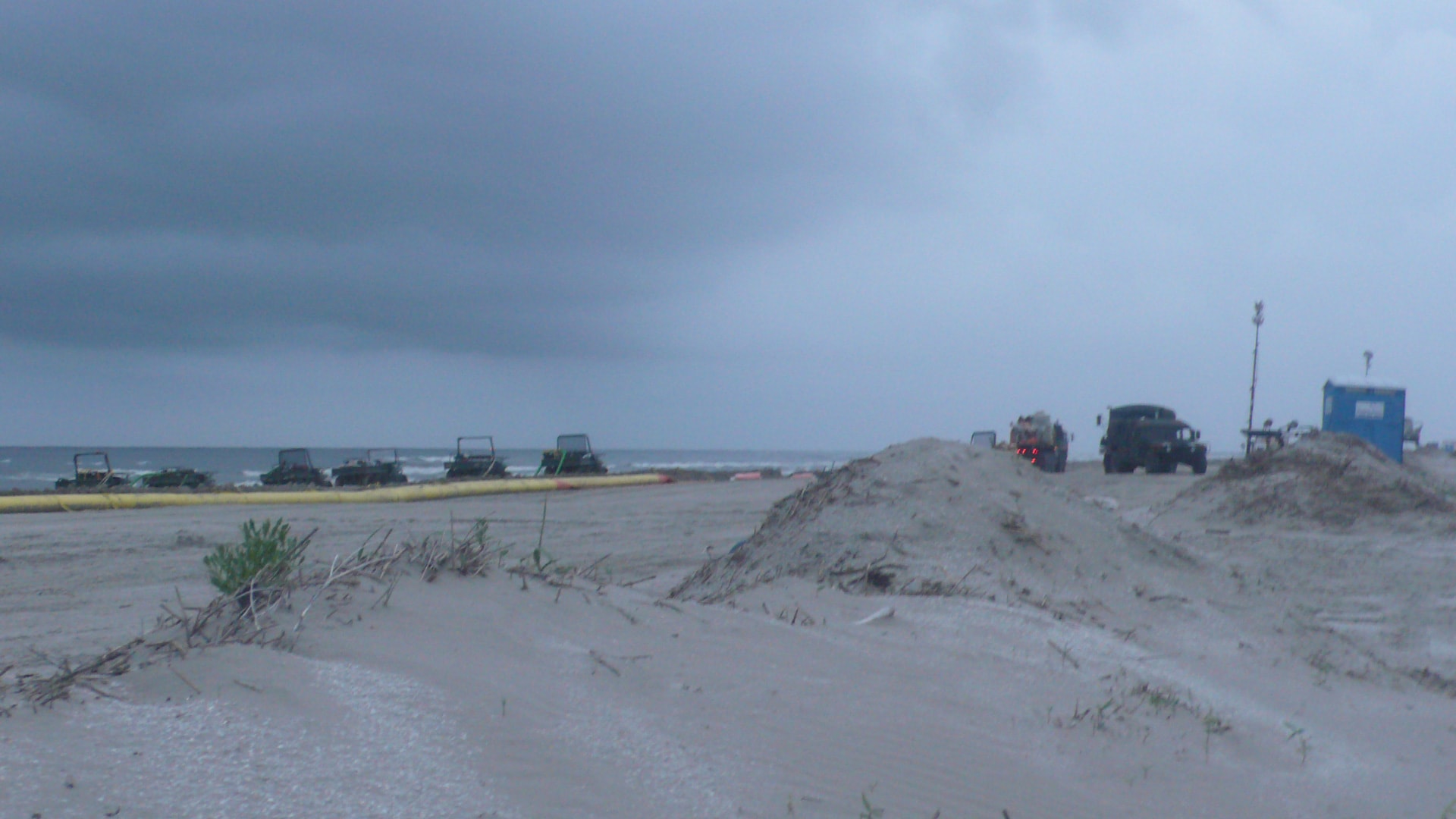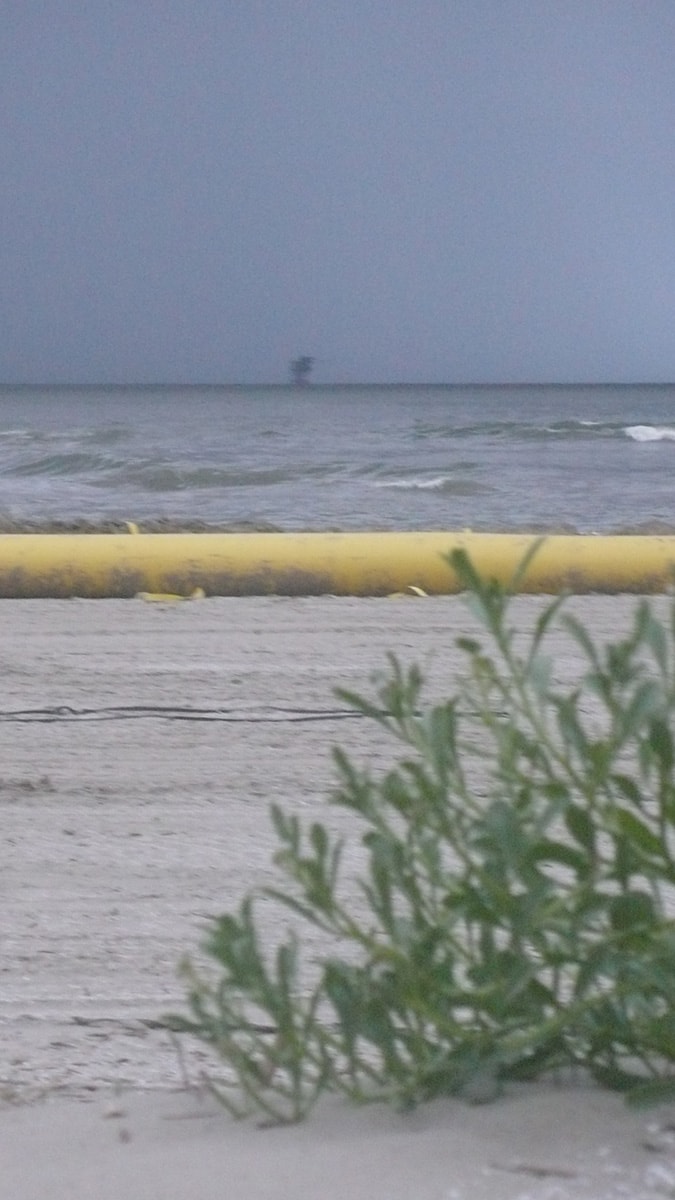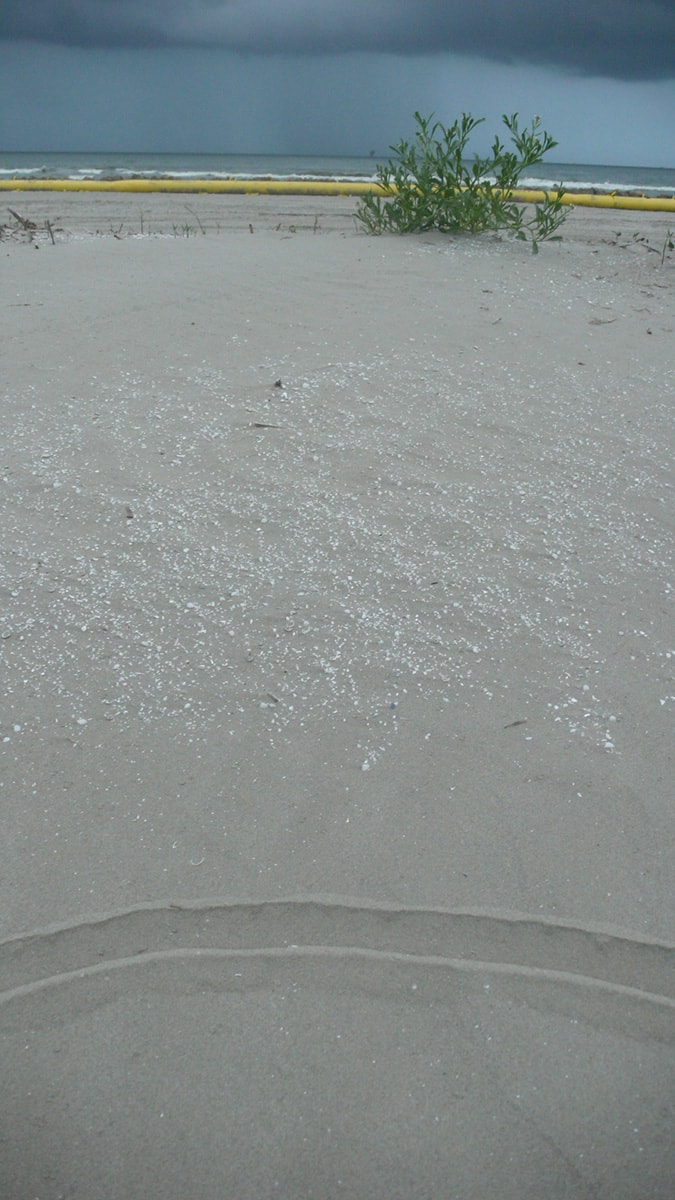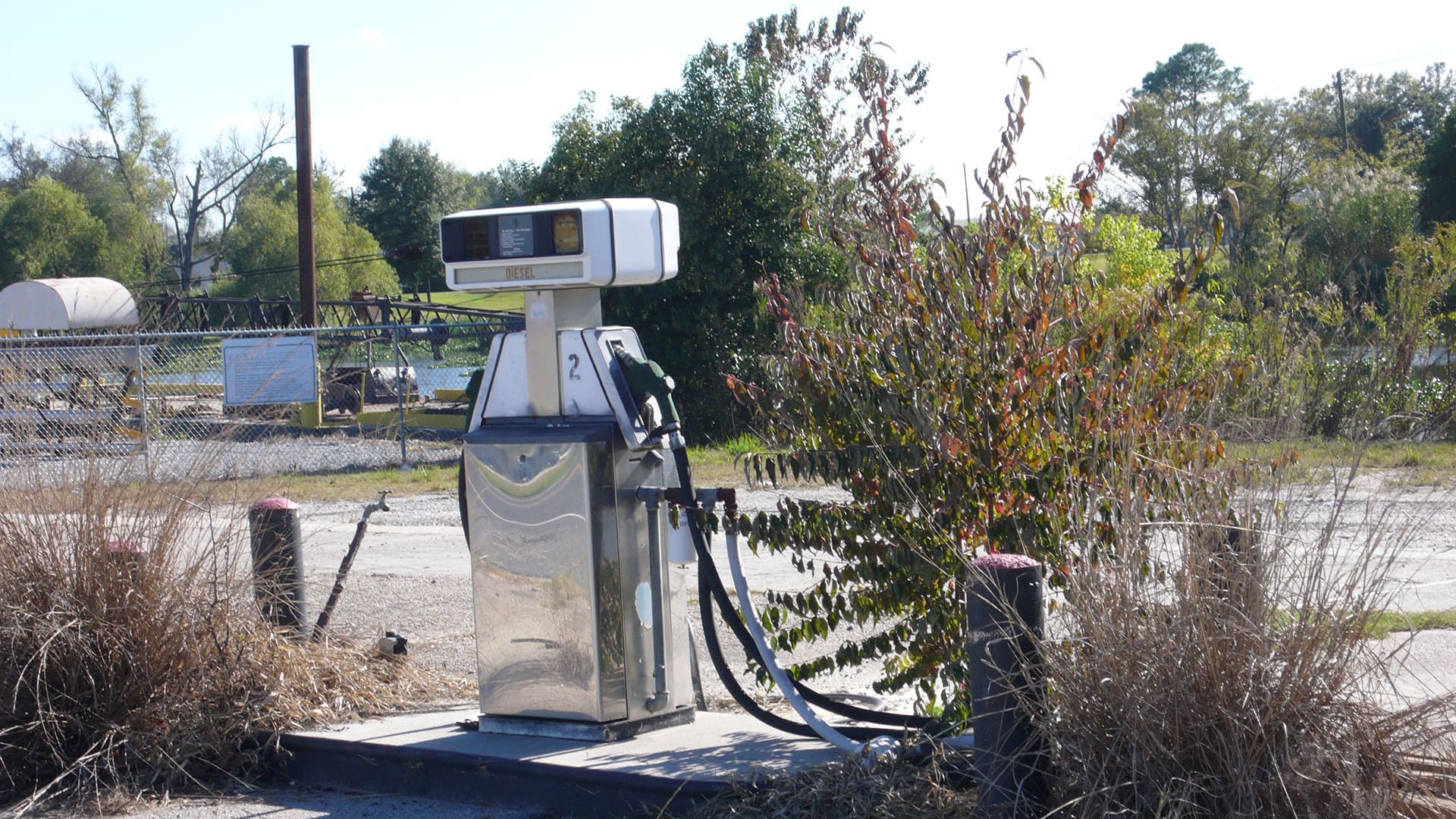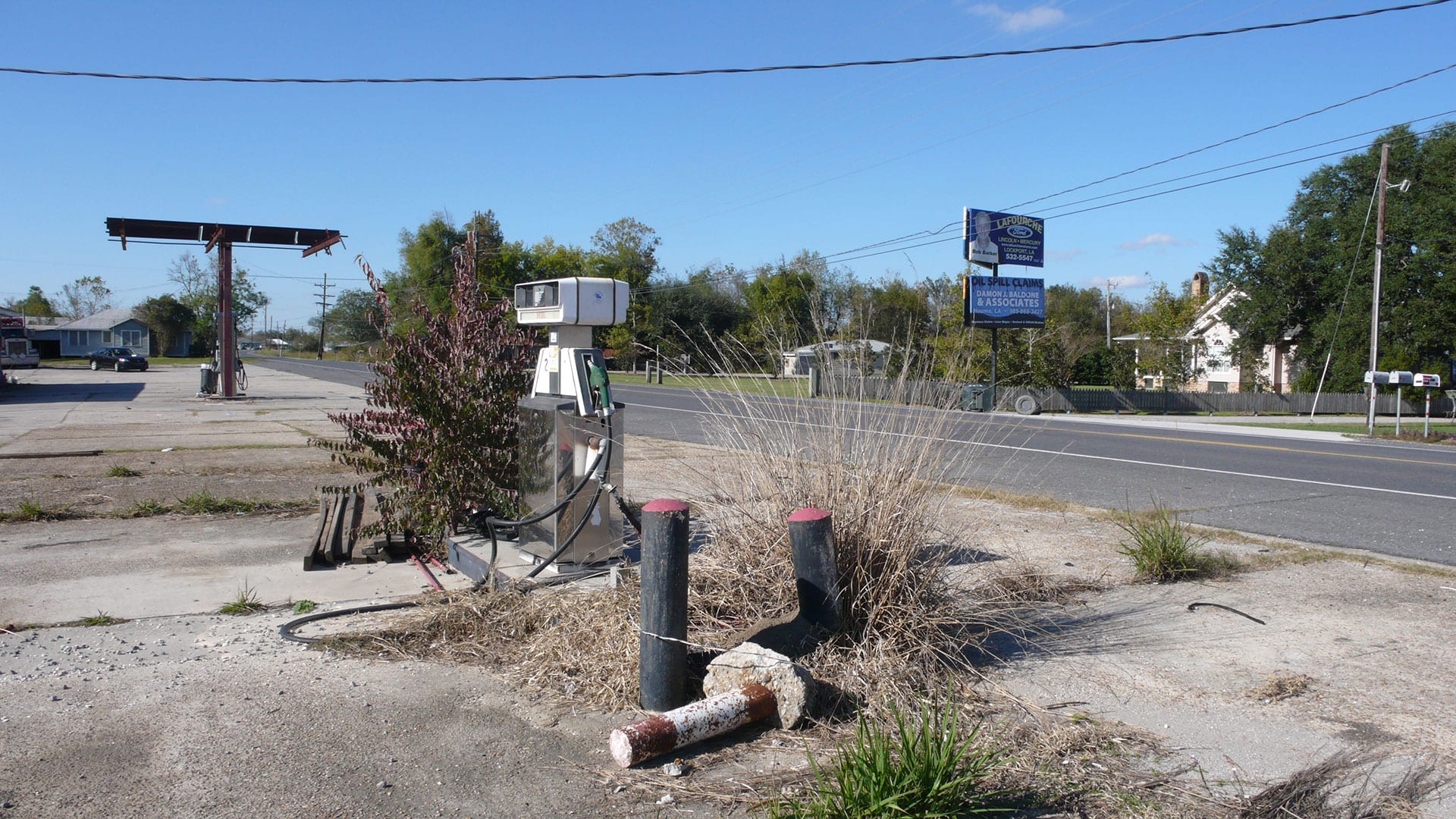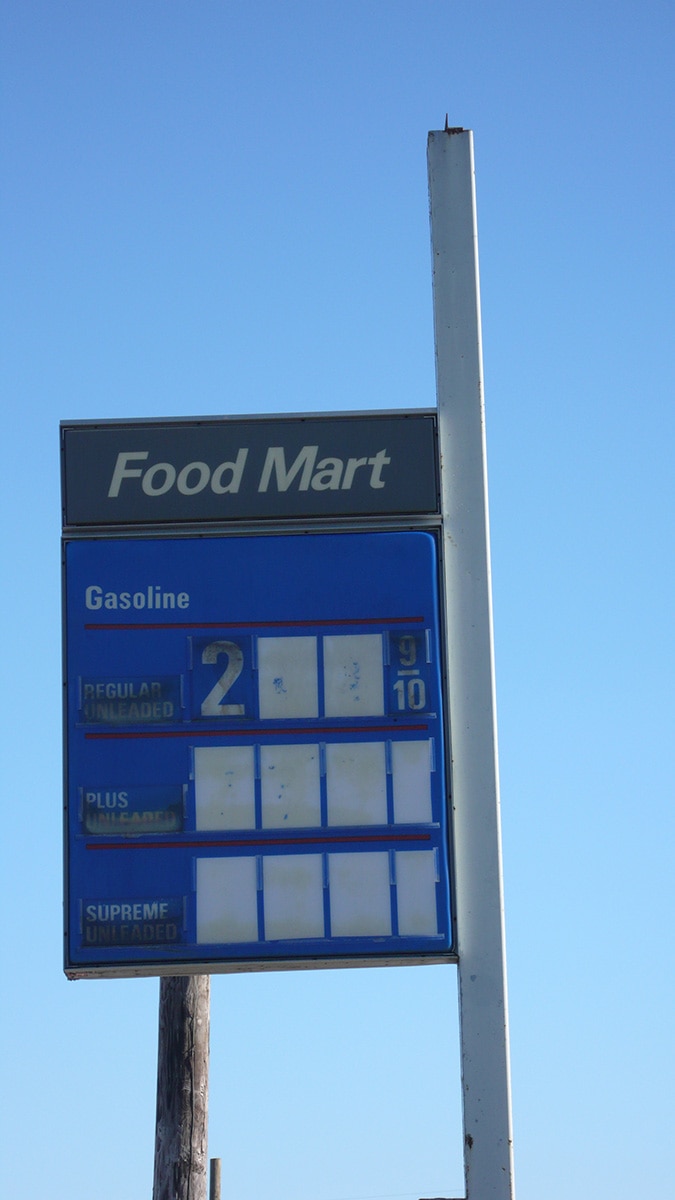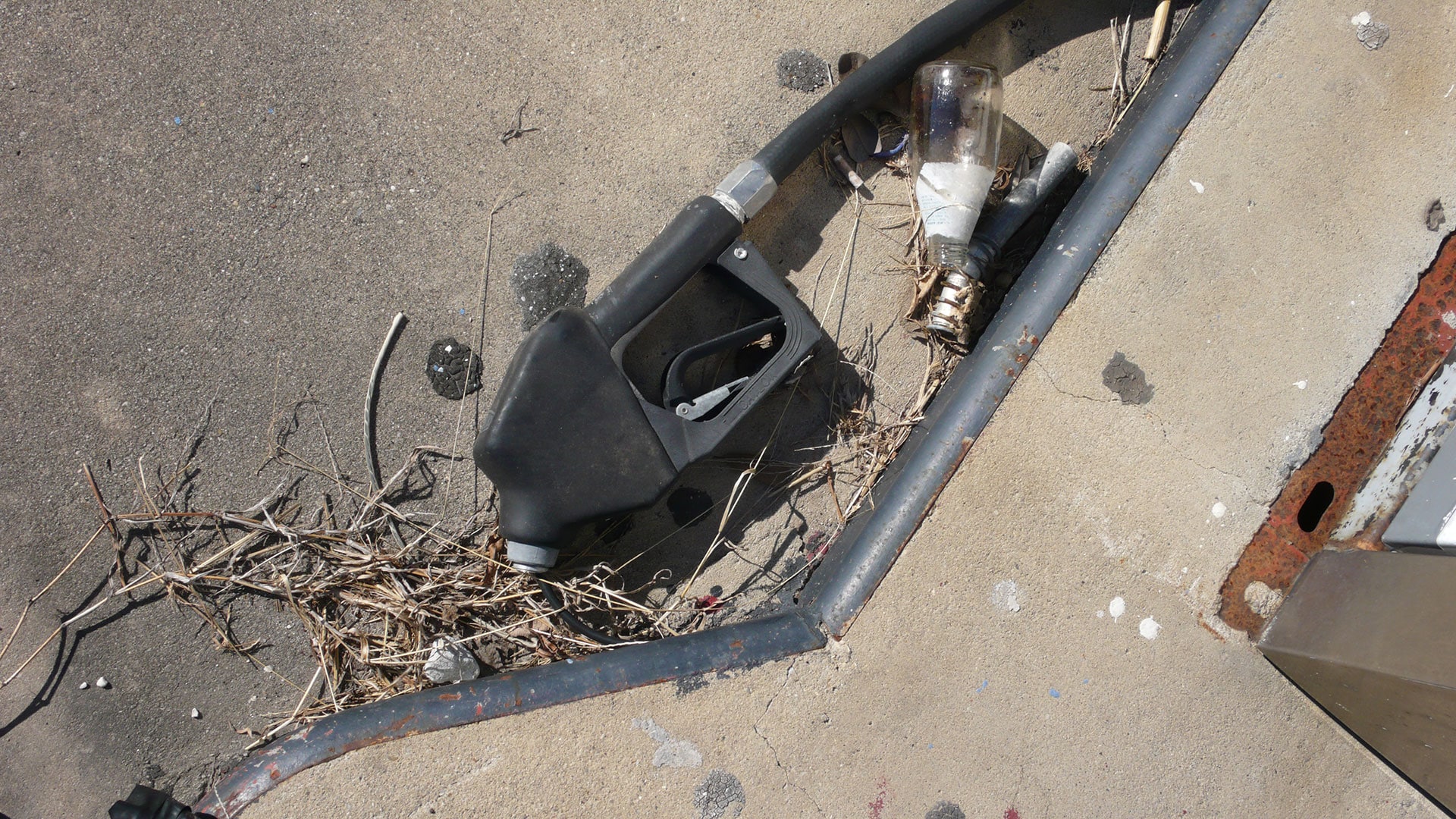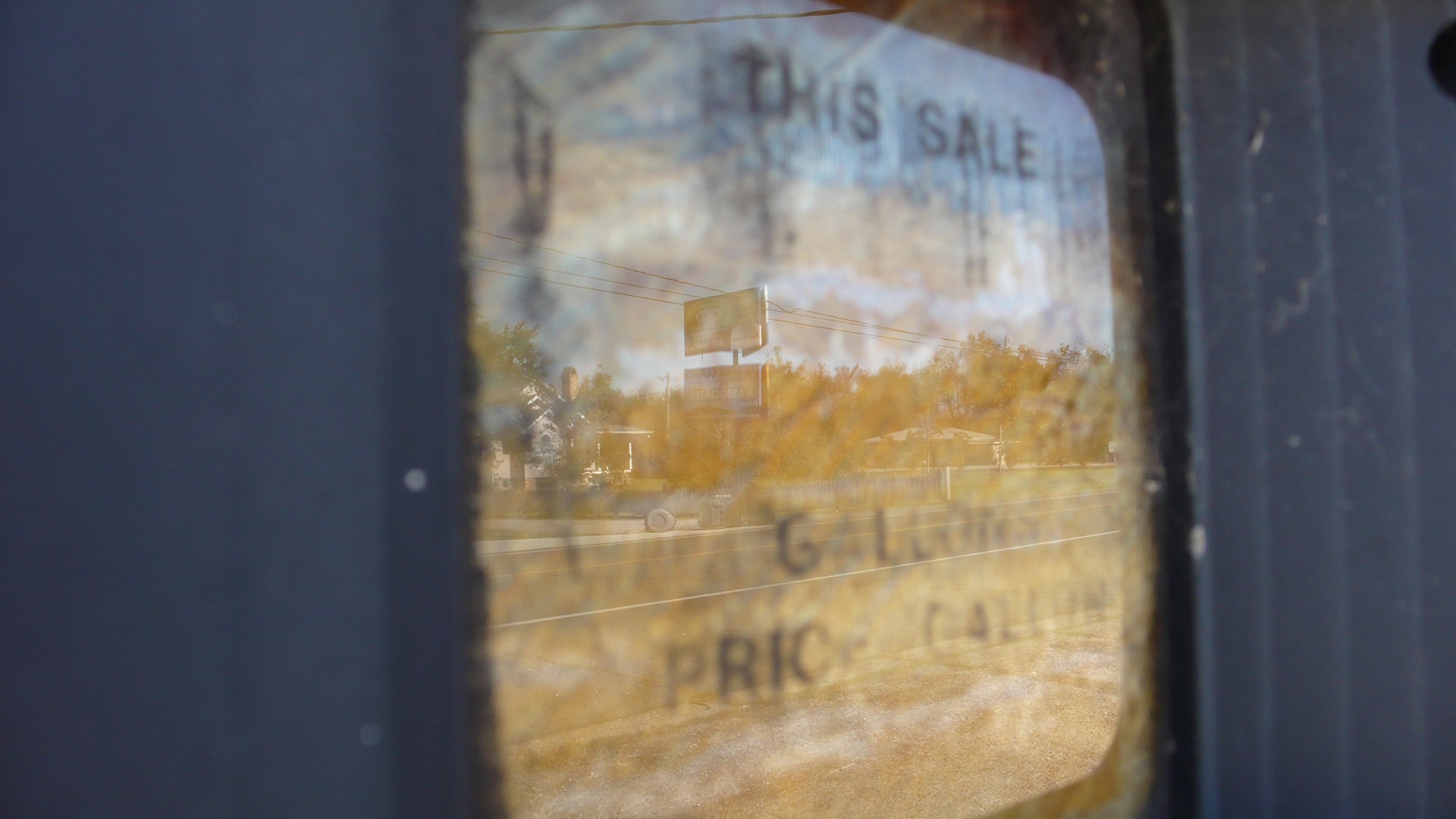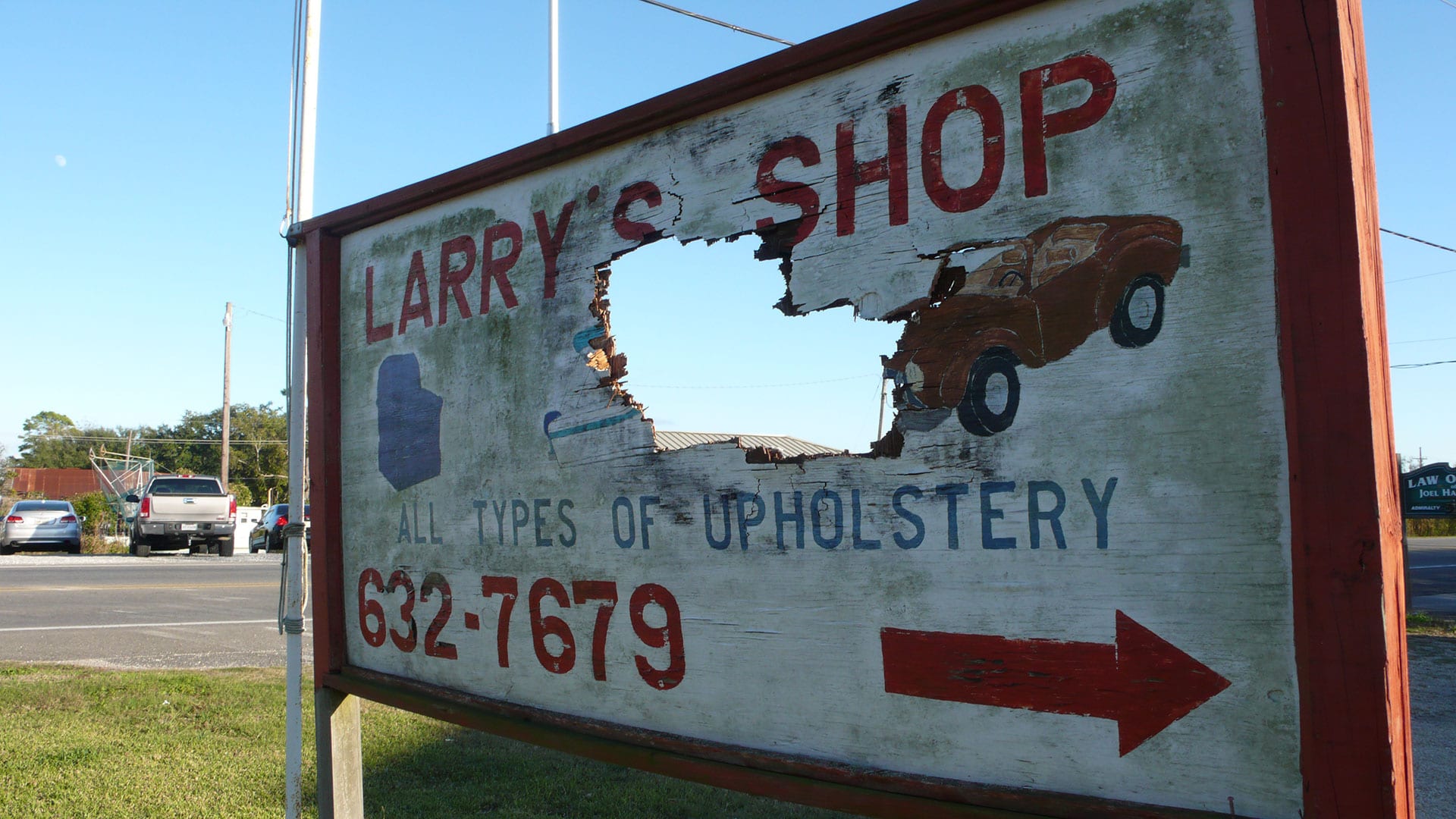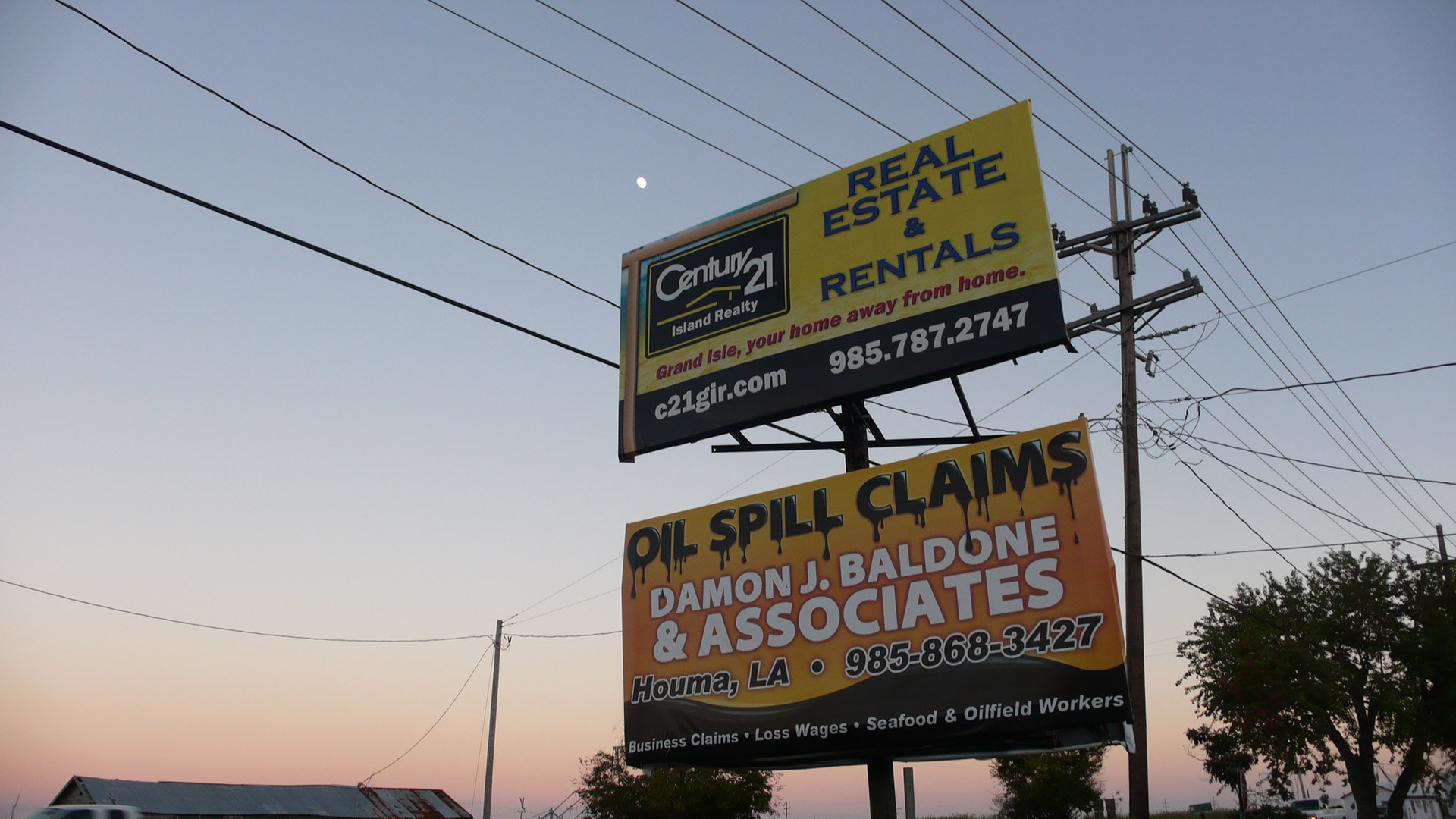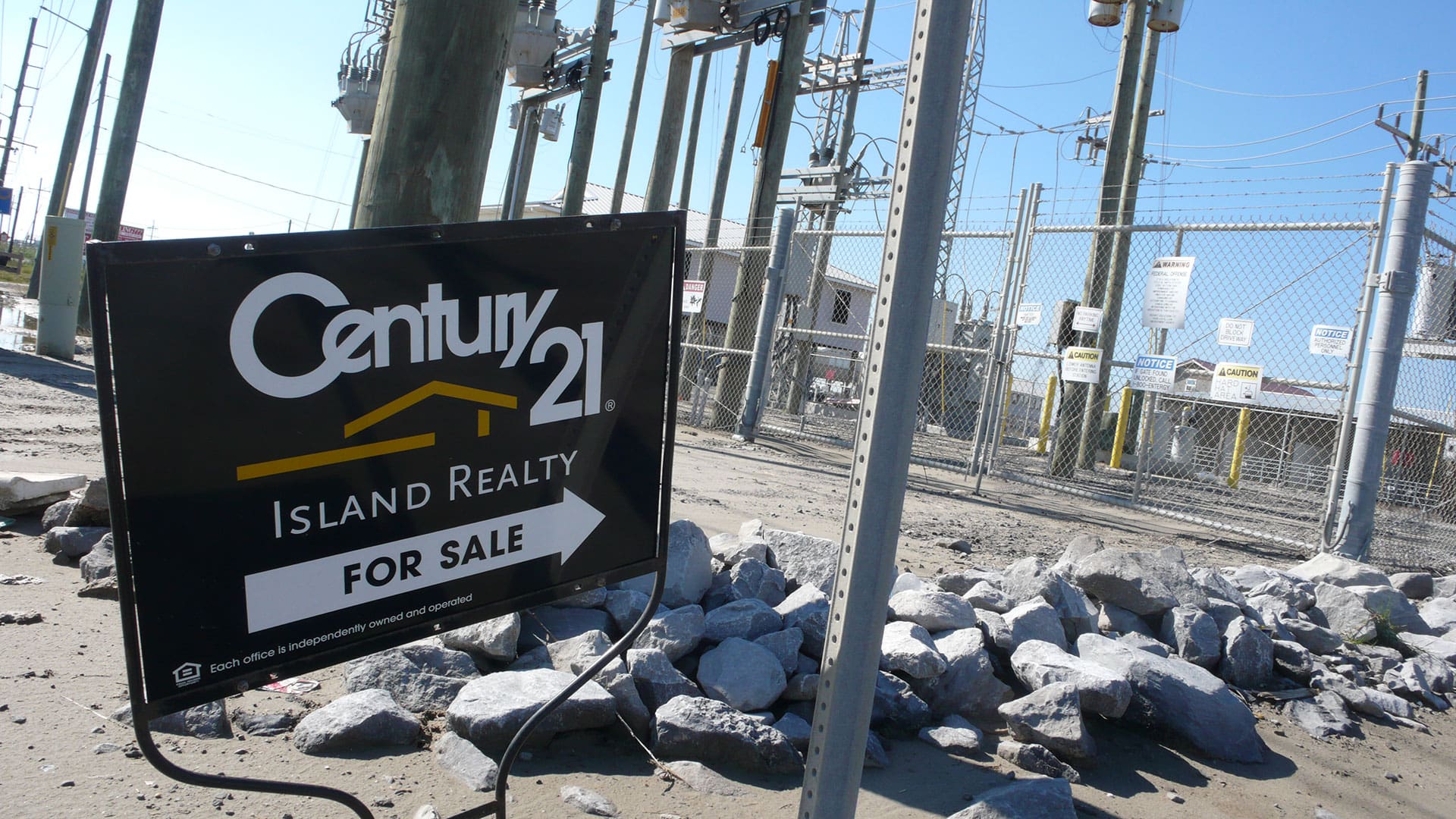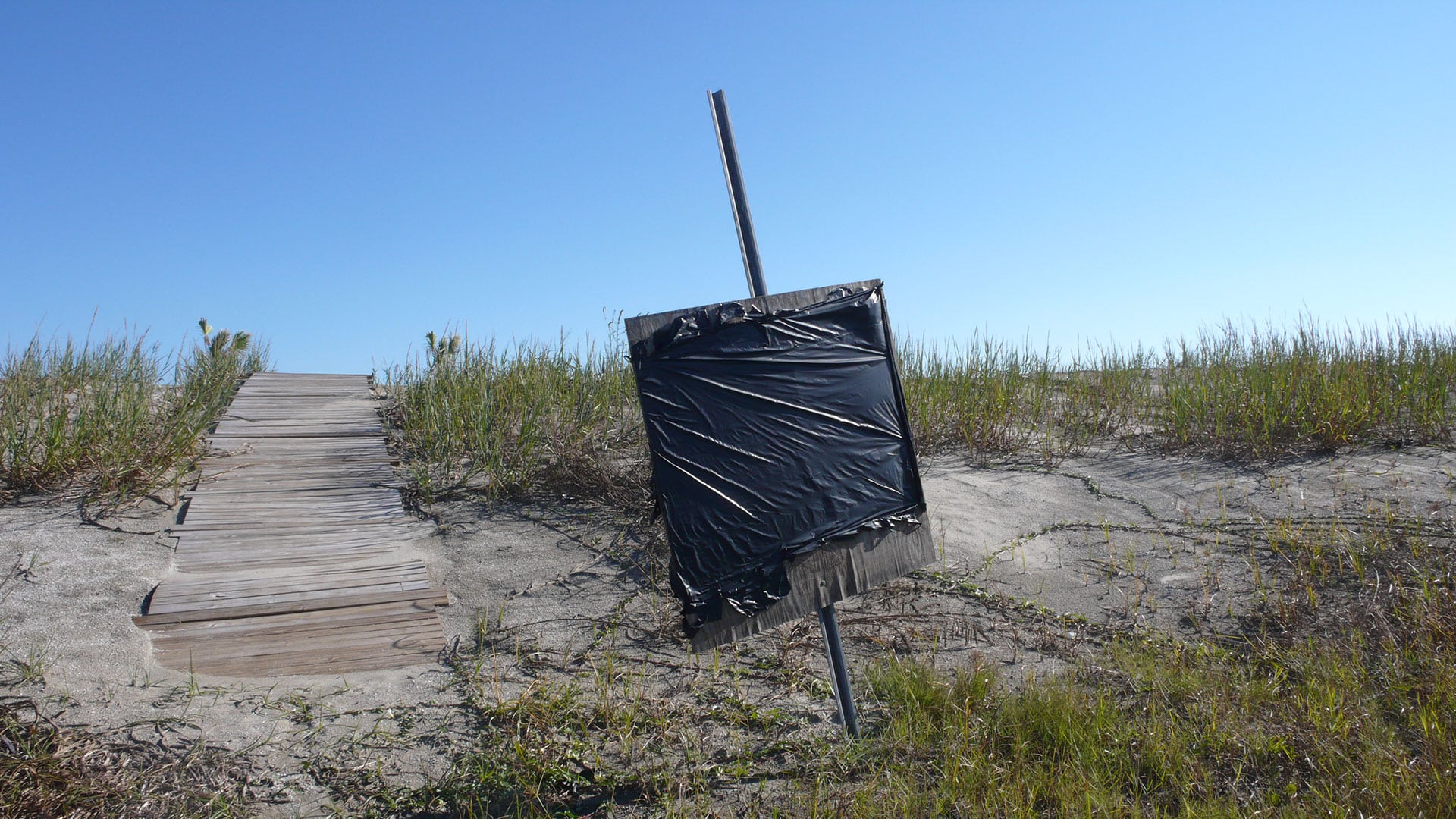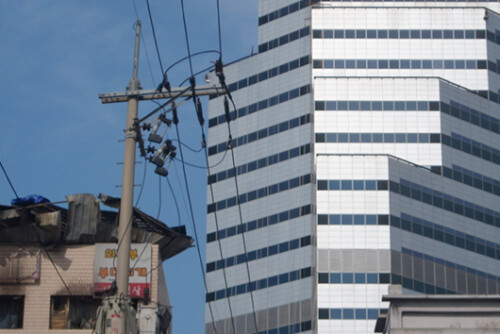At the crossroads of Louisiana’s Highway 1 and a $480 LEICA D-LUX 3 digital camera, at the intersection of disaster tourism and the blind field that animates branded images of catastrophe, signs of the times appear.
Today, the anticipation of disaster operates politically to govern time itself—repeatedly activating imagined futures in the present moment of their intensified foreclosure. At the same time, the slow accretion of disaster-effects (the plastic bags tangled in tree branches; the slow burn of 70 years of petro-capitalism displacing the rhythms of winter and spring) requires us to think beyond crisis narratives of disaster-as-event, conjuring, instead, the permeable boundaries of a catastrophe that unfolds through the ordinary time of repetition, accumulation, disposability.
If an “ecology of neoliberal politics” stretches back in time to post-World II U.S. cultures of automobility, privatization, and suburbanization made possible by new petroleum products (oil, plastics, vinyl, asphalt)1 ; if the 20th and 21st century extraction of petroleum literally mines the slow time of decaying organisms and stored sunlight, burning the viscous thought of millions of years of heat, pressure, dark, and time in a few minutes of industrialized combustion; if the BP oil disaster was a catastrophe of deep time, as millennial time explodes in the blowout of an underwater oil well that BP curiously named ‘Macondo,’ after Gabriel Garcia Marquez’s magical realist town that blows away in the wind by the end of the story;2 then perhaps it is time to wonder just what time is it? How to dwell in the mundane assemblage of slow catastrophe and globalizing infrastructural imperatives to kill time?
In contrast to the increasingly standardized processing of disaster-events through templates of crisis news and emergency preparedness, the slow catastrophe of repetitious wasting—of ordinary time itself wearing thin and human and non-human worlds bearing depleted signs of exhaustion—seems to have not yet found a language for expression, or public reckoning.
She was certified at a fairly high level to read signs and she can see, she can see we’re nearing the end of time.
Digital photographs taken by the author in June and November 2010, along Highway 1 and in Grand Isle, Louisiana—a key node in the transnational network of petroleum production, and a coastal frontline in the BP oil disaster.
